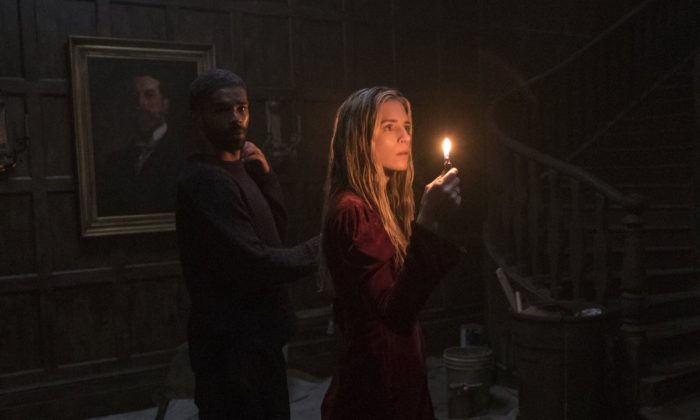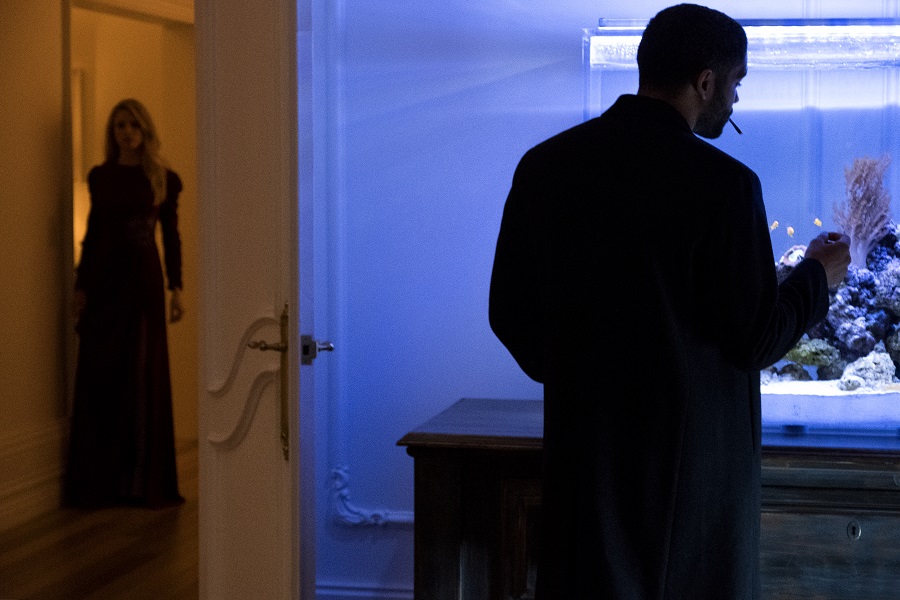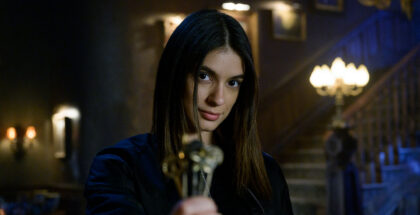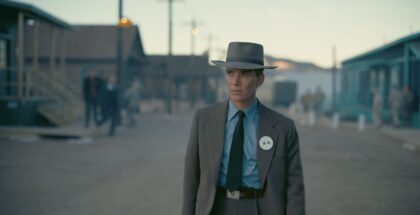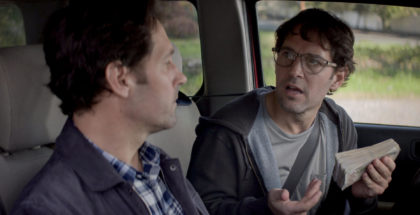First look review: The OA Part II
Review Overview
Cast
8Questions
8Answers
8David Farnor | On 21, Mar 2019
Warning: This contains spoilers for Part I and minor spoilers for the set-up of Part II. Never seen The OA? Read our spoiler-free review of the opening episode here.
Understanding things is overrated. That was one of the main takeaways from The OA, Netflix’s jaw-dropping fantasy drama. Quietly unleashed upon the world in 2016, it snuck up on everyone, an expansive exploration of faith, belief, life, death and every possible feeling and state in between. Most of all, it was sincere – an earnest plea to buy into impossible possibilities, open up to imagination and let go of the rules of physics, let alone storytelling. How many other TV shows can you name that build up to a piece of interpretive dance that may or may not have saved lives – or sent one, in particular, catapulting across the multiverse?
The OA Part 2 continues the series’ laudable aim to broaden horizons with a unique combination of ambition and idealism. But as the story of The OA and her followers continues, creators Brit Marling and Zal Batmanglij find themselves having to answer questions that were spellbinding partly because they were unanswered; ever since its first episode, which waited until two-thirds through to drop its opening credits (and whip us back several years to Russia in the process), this has been a show about rewarding leaps of faith, both for the characters on screen and the people watching, open-mouthed, on the sofa. The idea of introducing facts into the equation, then, doesn’t always seem like the smartest calculation. But while the obligation to explain things might sink most ordinary programmes, The OA could never be mistaken for one of those, and Part 2 finds a fresh way to make its formula work. Where another show might balance the need to answer questions with the asking of more questions, The OA keeps things riveting and immersive by making every new answer as bonkers as possible.
We pick things up right after Part 1’s finale, which saw Prairie (Marling) – the once blind woman who turned up in her hometown years after disappearing with her sight miraculously restored – and her friends stop a high-school shooting. That was primarily achieved by them all performing The Movements, a string of dance moves and contortions that The OA, as Prairie called herself, promised could open up some kind of portal to another dimension. Her aim? To travel through the stratosphere to reunite with Homer (Emory Cohen), with whom she was locked in a cell by the maniacal Dr. Hap (Jason Isaacs). The show left us with the cliffhanger of Prairie being shot, and Steve (Patrick Gibson), her most devoted believer, hearing a whooshing sound that seemed to suggest she had been transported from the ensuing ambulance trip all the way out of her body.
We do return to those left behind by The OA, and the question of whether they just imagined it all – and whether their synchronised dance moves simply distracted the shooter with their weirdness and nothing more – is very much in the air. Patrick Gibson’s Steve is the one still hung up on the notion that something supernatural took place, and he tries, with mixed results, to galvanise some of that belief among the group. He and Betty (Phyllis Smith), aka. BBA, remain the strongest and most interesting of the bunch, but even they straggle along somewhat limply in the absence of The Original Angel.
That’s intentional, though, judging by how compelling the other strand of The OA’s story unfolds. That takes us to San Francisco, where private detective Karim (Kingsley Ben-Adir) is convinced to look into the disappearance of Michelle by her concerned grandma. Michelle, it seems, was playing a cryptic game on her phone, one that promised money, respect and a whole lot of bewildering knowledge that isn’t a million miles from the kind of mumbo-jumbo The OA was dishing up last season – this is a show that loves its mumbo in super-sized portions, with a double helping of jumbo on the side.
By placing us back in the shoes of a random by-passer who strays into this unseen layer of metaphysical mysteries, The OA wonderfully recaptures that sense of discovery and wonder that made Season 1 so intriguing. Here, Karim lets us chew on riddles, gaze curiously into smartphone screens that spiral into eternal voids and mull over the significance of a very strange house. But he also enables the show to deliver exposition effectively, tying this viral code-cracking hobby into an elusive tech whizz, Pierre Ruskin (Vincent Kartheiser), and someone particularly close to The OA. He also delves into notions of patterns within dreams, travelers within other worlds and voices within other people’s heads – even as Karim grounds everything in familiar genre conventions, he’s helping the show to open its outer limits even wider.
Zal Batmanglij, who directs the majority of the opening episodes made available for review, does the same visually, from embracing the sun-dappled beauty of San Fran to crafting some stunning, neon-lit sets and otherworldly scenarios (two words: fish tank) that dare us to kick down the door to the next episode and find out more. Marling, meanwhile, continues to anchor everything with precisely the heart it needs to work. Without her expressive, sympathetic, enigmatic presence, The OA would fall apart in the face of cynicism or sentimentality, but whenever she’s on screen, as with Season 1, the series crucially avoids either camp.
Prairie, however, isn’t the same person as she was. In fact, when we finally do see her again, she’s possibly someone else entirely – and is committed to a mental health institute. Joining her is Dr. Happy (Isaacs), or someone who may or may not be him. While it would be fun to see them go up against each other without any certainty of their identity, The OA Part 2 makes a call pretty early on as to who they are and how they both got to this place. That certainty is disappointing, although it’s still a treat see Marling and Isaac interact regardless, especially as the person caught in the middle of their duelling is someone who may or may not be Homer (Cohen) – the emotional fallout of what happened in Season 1 impacts each one of the trio with visible heartache and a tangible hint of excitement.
The result is a sophomore season that’s determined to surprise, and hit you in the feels, even as it demystifies the miraculous, and that combination makes for a delightfully unusual blend of plotting that’s complicated and plotting that’s simply ridiculous. If Season 1 was an astonishing feat of world-building, Season 2 is a thrilling extension of that, building world after world on top of and underneath the one we already know; The OA remains a magical realist fantasy, one that loves science and the cult movements that can surround faith in equal measure. Twisting in on itself while extending its reach, this is a programme that wants us to understand where it’s taking us, but only so it can wrap its tentacles even further around our expectations, before yanking them just out of reach. If you were suckered in the first time around, you won’t be disappointed.
All episodes of The OA are available on Netflix UK, as part of an £9.99 monthly subscription.


